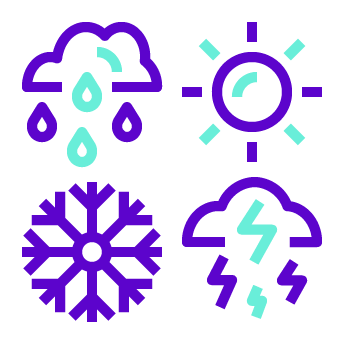+966 541595303
adventures@travaganza.co
The rainbow nation, the country of diversity. From diversity in human culture with its countless ethnic groups and 11 official languages, to diversity in geography with its snow dusted mountains to the deserts and jungles, passing through its powdery beaches and two oceans with its amazing marine wild life. Whether you’re looking for a beach vacation, a city break, adrenaline rush, or an escape into the wilds of Africa, South Africa has the ability to be all things to all people.







South Africa runs on 230V and 50Hz, and uses different electricity outlets, which varies randomly from place to place. Expect to find Type D (Commonly used in the Indian subcontinent, with three round pins), Type M (similar to D, but with larger pins), and Type N (Commonly used in Brazil) in use throughout the country, with Type M is the most common to find.
Only nationals of 46 countries with valid national passports are not required to obtain South African visas for visits that ranges from 30-90 days. List of exempted nationalities includes: Saudi Arabia, Canada, Australia, UAE, Qatar, USA, UK, Tunisia, and Jordan. But we recommend that you double check with SA embassy at your country for official confirmation.
Cape Town is currently experiencing one of the worst scarcities it has seen in over 100 years, and while we want you to have the best time possible while there, here are some tips to help reduce your water usage:
– Bring a reusable water bottle, that you can fill with Cape Town’s tasty tap water.
– Reuse your towels in the hotel, for at least two days, before getting new ones.
– Keep your laundry until you have a full load to do, rather than just doing a handful of items.
– Turn off the tap when brushing your teeth, or shaving.
– Keep your showers to two minutes or less.
ATMs are widely increasing and available in major cities and town in South Africa. Credit cards are generally accepted in tourist shops and some restaurants. Visa and MasterCard are generally preferred over American Express, and Visa cards are more recognized over MasterCard. You should be aware that some venues charges extra 3-5% for purchases by cards. Smaller venues take cash only.
If you plan to rely on cash, please bring foreign currency (Euro, Pound, USD) while the easiest foreign currency to exchange for local currency is $US. However please note that mostly any US notes that are older than year 2006 are not accepted. Money exchange bureaus usually offer the best exchange rates.
No, there is no formal requirement for any shots for entry into South Africa, However a valid international certificate of vaccination against Yellow Fever is required in if you are arriving (or had a long transit) from a country with risk of yellow fever (eg. Kenya, Ethiopia, Tanzania). You may need to present this on arrival at the airport or border crossing.
Cape town is generally considered Malaria free city. Risk of malaria can increase during periods of heavy rain, during the rainy seasons. To prevent malaria, we recommend speaking to your doctor about taking preventative medication (prophylaxis), along with regular use of insect repellent spray/cream.
Cape town is a touristic city that is generally safe. While many national governments provides a regularly updated advice on safety issues involved with international travel. We recommend that you check your government’s advice for their latest travel information before departure.
We strongly recommend the use of a neck wallet or money belt while travelling, for the safe-keeping of your passport, air tickets, cash and other valuable items. Leave your valuable jewellery at home – you won’t need it while travelling. Many of our hotels have safety deposit boxes, which is the most secure way of storing your valuables. A lock is recommended for securing your luggage.
Please use your own good judgment when selecting an activity in your free time. Although the cities visited on our trips are generally safe during the day, there can be risks to wandering throughout any major city at night. It is our recommendation to stay in small groups and to take taxis to and from restaurants, or during night time excursions.
Most dietary and food allergies requirements can be organized provided you request them well in advance. However, some meals and activities that are fixed in advance and therefore cannot be modified to suit dietary requirements.

